- Getting Started
- Administration Guide
-
User Guide
- An Introduction to Wyn Enterprise
- Document Portal for End Users
- Data Governance and Modeling
- Working with Resources
- Working with Reports
- Working with Dashboards
- View and Manage Documents
- Understanding Wyn Analytical Expressions
- Section 508 Compliance
- Subscribe to RSS Feed for Wyn Builds Site
- Developer Guide
Add a Relationship
A relationship represents the association between two entities. The direction of the arrows represents the relationship cardinality between the source and the target entities. In this article, you can find the steps to add a relationship and descriptions about the important properties. For more information, refer to the following sections.
Add a Relationship
This section describes the steps to add a relation between the Customers and Orders entities such that zero or one Customer record corresponds to many Orders records.
To add a new relation, click the Add Relationship button on top of the model editor.
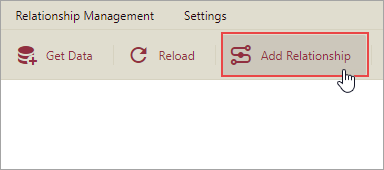
In the Add Relationship dialog box that appears, enter the name for the new relationship.
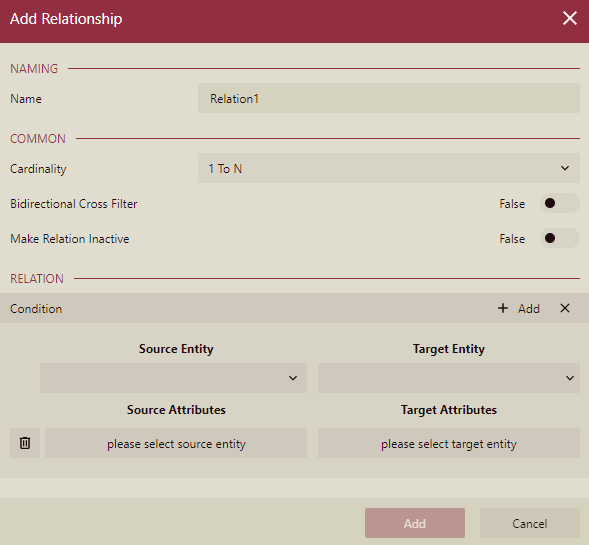
Set the relationship cardinality to '1 To 1', '1 To N', '0..1 To N', 'N To 1', and 'N To 0..1'.
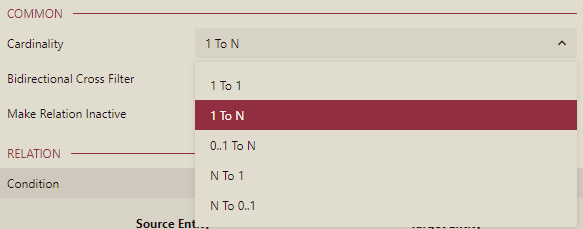
Use the Bidirectional Cross Filter and Make Relation Inactive toggle buttons to
control the behavior of the relationship.
Under the Relations section, specify a source entity from the list, and choose its desired attribute.
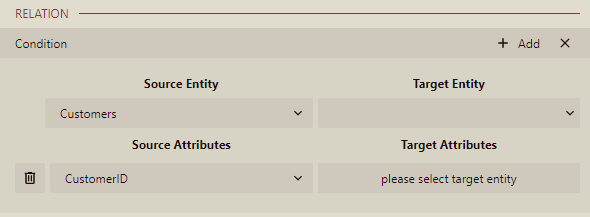
Similarly, specify the target entity from the list, and choose its desired attribute.
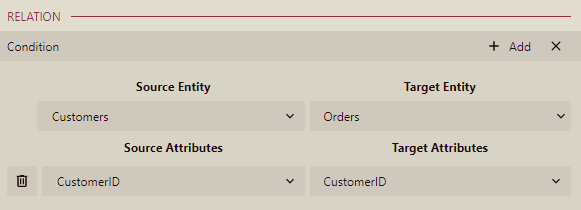
Click the Add button. A newly added relation will appear in the list of relations of the data model's entity.
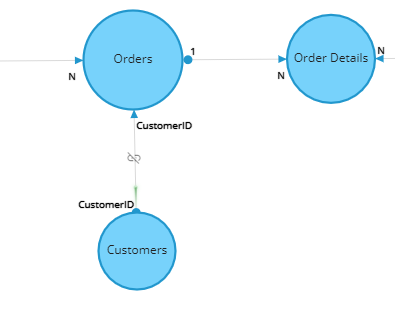
Important Properties
The following table describes the important properties of a relationship that you can set in the Data Model Designer.
Property Name | Description |
|---|---|
Name | The name of the relation. |
Cardinality | Defines the rules and restrictions for the relation's behavior in the entity tree and query building. Possible values are '1 To 1', '1 To N', '0..1 To N', 'N To 1', and 'N To 0..1'. This property determines whether the Recursive property has an effect on the relation. |
Bidirectional Cross Filter | Lets you apply a filter on both sides of the relationship. You cannot enable a bidirectional cross filter in the case of a one to one relationship. |
Make Relation Inactive | Enables you to create a relationship active/inactive based on your requirements. |
Condition | Indicates whether to base this relation on an existing logical relation from the list. |



